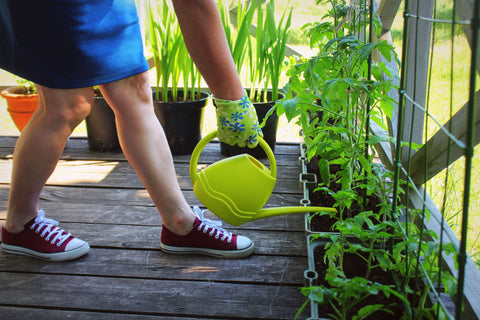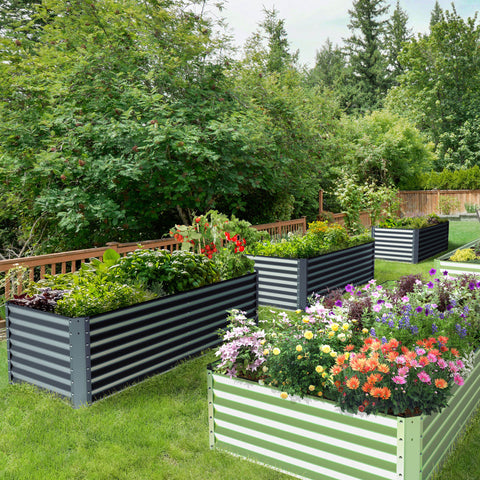Growing your own organic garden is definitely the best way to bring the freshest, tastiest, and healthiest vegetables to your kitchen and onto your plate. If you let it, it can also change your life in wonderful and unexpected ways. Caring for the soil, nurturing plants, and eating vibrant foods that you grow yourself can strengthen your body and soul, and it's a very satisfying thing to do.

- Start with soil testing
When you're first starting an organic garden (or transitioning to a chemical garden), it's important to have a soil test that will show if your garden soil is lacking in any nutrients. If your garden is lacking in any particular nutrients, you can supplement your initial crop with appropriate organic fertilizer. There are detailed instructions on my Organic Fertilizer page to explain your soil tests and create a custom mixture to correct your deficiencies.
- Compost
Compost is not optional or a good idea, it is an essential foundation for an organic garden. All yard, garden, and vegetable kitchen waste should be composted for use in the garden, and there are a variety of compost bins, cups, worm bins, and other methods available. Compost provides humus and microorganisms and is also necessary for good soil structure. Soil structure plays an important role in plant health and insect resistance.

- Organic garden layout
There are many different ways to lay out an organic garden, but only a few methods are truly sustainable in the long term. The most popular is the French intensive vegetable growing method of double digging. It has been proven to have the highest yield per square foot of all methods while requiring the least input. However, I've learned over the years that if you're optimizing the minerals and microbes in the soil, giving the plant's roots more space will actually produce more nutrients for optimal nutrition.
- Organic treatment of plant pests
The three most useful ways I've found to organically deal with plant pests are: quality soap, spray fish, and frankincense oil
These methods may not work for every error you might encounter, but they can fix most. Neem oil is an amazing substance that has a number of different effects on pests, mainly by interrupting their reproductive cycle.

After your first year, you'll want to start incorporating some more advanced techniques to maximize the ongoing health of your garden. You'll want to do a little more planning in advance.
Each year when you are doing your garden layout, you should have the previous year's layout in front of you so you can keep a close eye on crop rotation, companion planting, organic weed control and providing habitat for beneficial insects. Putting all this together is part of making an organic garden work in harmony with nature rather than against it. Integrating all these bits and pieces of knowledge into a synergistic whole is an art form (and a science) that is both challenging and rewarding.
Autumn gardening is another adventure. If you plan ahead, you can extend the production of many leafy greens, root crops, and cabbage family crops to and beyond the first frost date of fall. Organic vegetable farming can become an integral part of a person's life, connecting a person to the natural world of which they are a part, yet most people feel disconnected from it.









